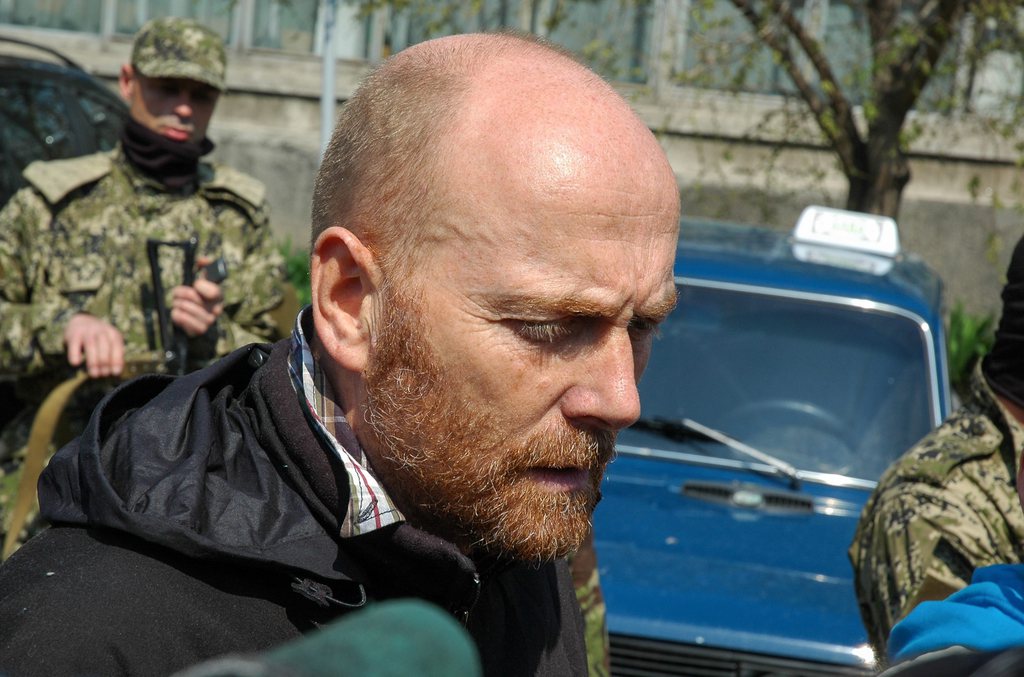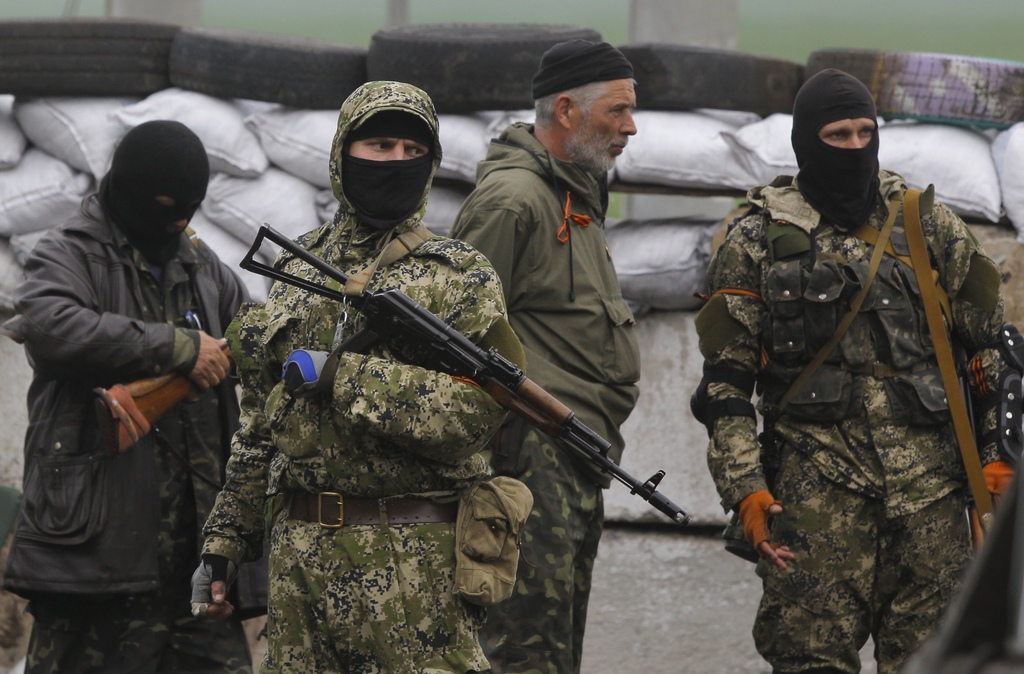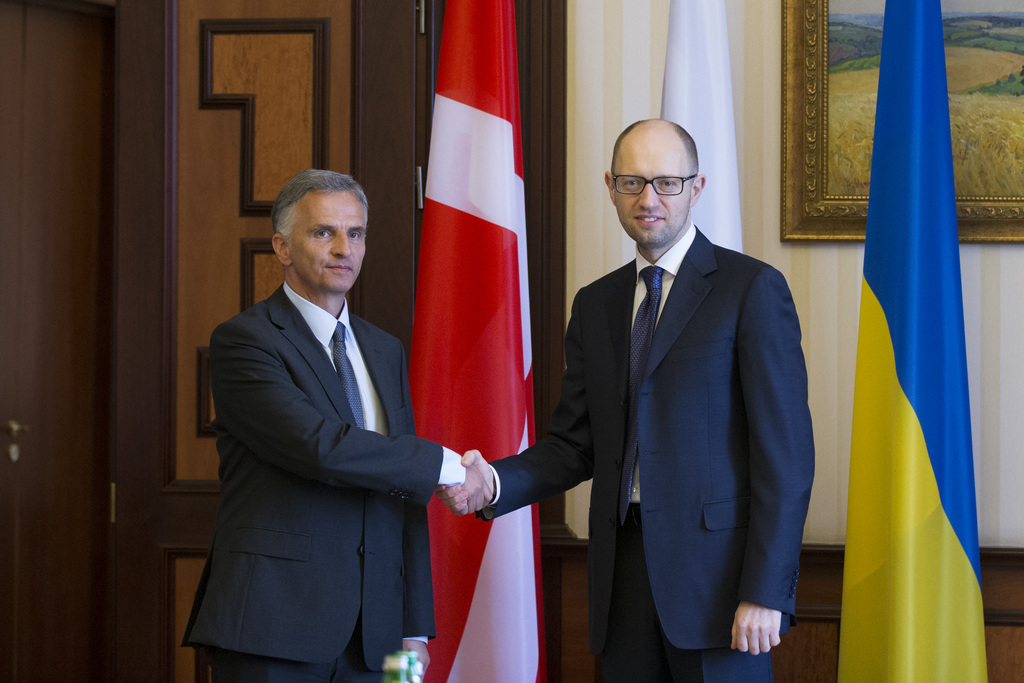Burkhalter applauds OSCE hostage release

Swiss Foreign Minister Didier Burkhalter has praised the international effort that secured the release of seven military observers in Ukraine on Saturday. The multinational group had been detained by pro-Russian separatists since April 25.
Burkhalter, who is also president of the Organization for Security and Cooperation in Europe (OSCE), reiterated that the situation in Ukraine is likely to deteriorate further as government troops continued to clash with protesters in the east of the country.
The seven OSCE military observers – four Germans, a Dane, a Pole and a Czech – were set free in Slaviansk along with five Ukrainian officers who were captured with them. Burkhalter had special praise for the OSCE special monitoring mission that helped secure their release.
In the meantime, Ukrainian forces continued their “anti-terror” operation that began on Friday. There have been several deaths, most notably around 30 civilians who perished in a burning warehouse in Odessa on Friday.
“In this very tense situation, it [is] of utmost importance for all sides to act responsibly, exercise maximal restraint, to refrain from violence and search solutions through dialogue,” Burkhalter was quoted in an OSCE press statement on Saturday. “Joint efforts to stop escalation and to find a way back to dialogue have to be undertaken.”
Swiss sanctions
On Friday, Burkhalter agreed with German counterpart Frank-Walter Steinmeier a way forward for the OSCE special monitoring mission’s efforts to tackle the escalating problems in Ukraine.
The mission would “pursue the necessary high-level contacts with the main partners in order to coordinate this mission’s ongoing work”, the Swiss government said in a statement.
Steinmeier described the situation as “one of the most serious and dangerous crises Europe has seen in a long time” and said the disagreement between Russia and the Ukraine is “a huge challenge for the EU and the OSCE”. For weeks, Germany has been calling for the formation of an international contact group to address the crisis.
Also on Friday, the Swiss government expanded the list of Russian and Ukrainian citizens with whom Swiss banks are not allowed to initiate new business, bringing it further in line with European Union measures.
The names of 15 top Russian politicians and representatives of the pro-Russian rebels in eastern Ukraine were added to the list on the State Secretariat for Economic Affairs (SECO) website, which now contains a total of 48 names. These names already appear on the official EU sanctions list, published on Tuesday.
The travel restrictions imposed by the EU on these 48 private individuals also have an effect on Switzerland via the Schengen Association Agreement. Consequently, no special measures are needed to prevent the circumvention of these sanctions, SECO said.

In compliance with the JTI standards
More: SWI swissinfo.ch certified by the Journalism Trust Initiative











You can find an overview of ongoing debates with our journalists here . Please join us!
If you want to start a conversation about a topic raised in this article or want to report factual errors, email us at english@swissinfo.ch.